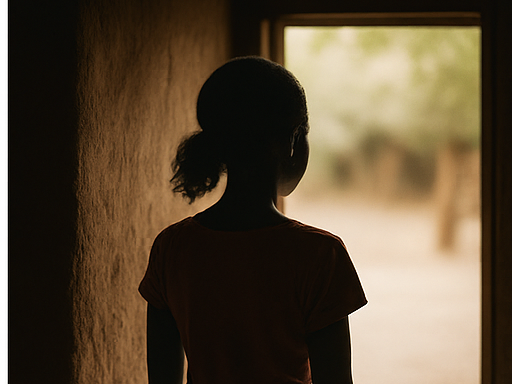Sparkle News

Imagine being a young child, sitting in class with an empty stomach. The teacher is speaking, but the words drift past without meaning. Your mind is on the hunger gnawing at you, not on the lesson. When break time comes, instead of running to play with your friends, you sit quietly, too tired to join in. Hunger steals more than just food. It takes away concentration, joy, and the chance to thrive. Now, imagine the same child after receiving a simple, nutritious school meal. Suddenly, the story changes. With a full stomach, their mind sharpens. They can focus on the teacher’s voice, write neatly in their exercise book, and raise their hand with confidence. At break time, they laugh, run, and play with friends. That meal does more than fill an empty belly. It fuels learning, energy, and growth. At The Sparkle Foundation, we see this transformation every day. We provide nutritious meals to about 240 children daily. Our preschool children receive both breakfast and lunch, giving them the energy they need to start the day well and the strength to keep learning and playing throughout the day. For our primary school children, we provide lunch before they begin their afternoon lessons, ensuring they can sit in class with full stomachs and clear minds.

In Malawi, the heartbeat of the nation is undeniably young. With over 70% of the population under the age of 30, and nearly half under 18, we’re one of the youngest countries in the world. That’s both an incredible opportunity and a serious challenge. Without the right support, this “youth bulge” could become a burden. But with the right investment, it could drive Malawi forward in ways we can only begin to imagine. Behind the Numbers On paper, this youthful population sounds like an economic dream. But the reality? Many young people in Malawi are struggling. Youth unemployment is high, with estimates suggesting that over a quarter of those aged 15 to 24 are out of work. Even more are trapped in the informal sector, with few prospects for advancement or stability. These statistics aren’t just numbers. They’re young lives full of potential that’s going unnoticed, untapped, and unfulfilled. That’s a loss not just for them, but for all of us.

The early years of a child’s life are incredibly important. It’s during this time that their brain is growing quickly, and they’re beginning to understand how the world works. That’s why early childhood education, or ECD, is so valuable. It’s not just about learning numbers and letters – it’s about building the foundation for everything that comes after. At Sparkle ECD Centre, we see the difference every single day. We see how children grow in confidence, how they start to think for themselves, and how they develop the skills they need to succeed later in life. But we also know what happens when children miss out – and what that means not only for them, but for the country as a whole. They learn how to live with others One of the most important things children gain in ECD is social development. It’s the first time many of them are around other children for long periods, and they begin to learn how to share, take turns and communicate their feelings. These early social skills help them later on – in school, in work, and in everyday life. When children don’t have access to early education, they often struggle with these things. They might find it hard to settle into primary school, make friends, or follow simple rules and routines. They develop strong thinking and communication skills ECD gives children the chance to explore and ask questions. Whether it’s through puzzles, storytelling or imaginative play, they’re constantly learning how to solve problems, remember details and express their thoughts. These early learning experiences are essential for developing language, creativity and curiosity. If a child misses out on this stage, they may arrive at school already behind. They might struggle with reading, writing or understanding instructions – and it can be very difficult to catch up. They start to believe in themselves At Sparkle, we love seeing children take part in career days where they dress up as doctors, builders, teachers or whatever they dream of being. These activities might seem simple, but they give children something powerful – the belief that they can do and be something great. Children who go through ECD are more likely to stay in school, finish their education, and go on to lead fulfilling lives. They become more confident, more curious and more resilient. Without that early encouragement, many children never get the chance to dream big. They get a fairer start in life Unfortunately, not every child in Malawi has access to quality early education. Many miss out on a safe space to play, learn and be looked after. They don’t get the early support that could help them grow – emotionally, socially and academically. At Sparkle, we work with children from 17 villages around Zomba, offering them a chance to start strong. We believe that early education shouldn’t be a privilege, it should be a right. Why this matters for the country When a child gets a strong start, they carry that confidence and knowledge with them. They’re more likely to do well at school, get decent jobs, and support their families. They become active, engaged members of society. But if large numbers of children are left behind at the very beginning, the whole country feels it. It affects education levels, employment, and the economy. It widens the gap between those who have access and those who don’t. Investing in early childhood education isn’t just about helping one child – it’s about building a stronger, fairer Malawi. Final thoughts Early childhood education gives children the building blocks for life. It helps them grow into kind, confident and capable people. Without it, they miss out on crucial experiences – and that missed potential affects all of us. Let’s make sure every child has the chance to start well. Let’s invest in the early years – for their future, and for the future of our nation.
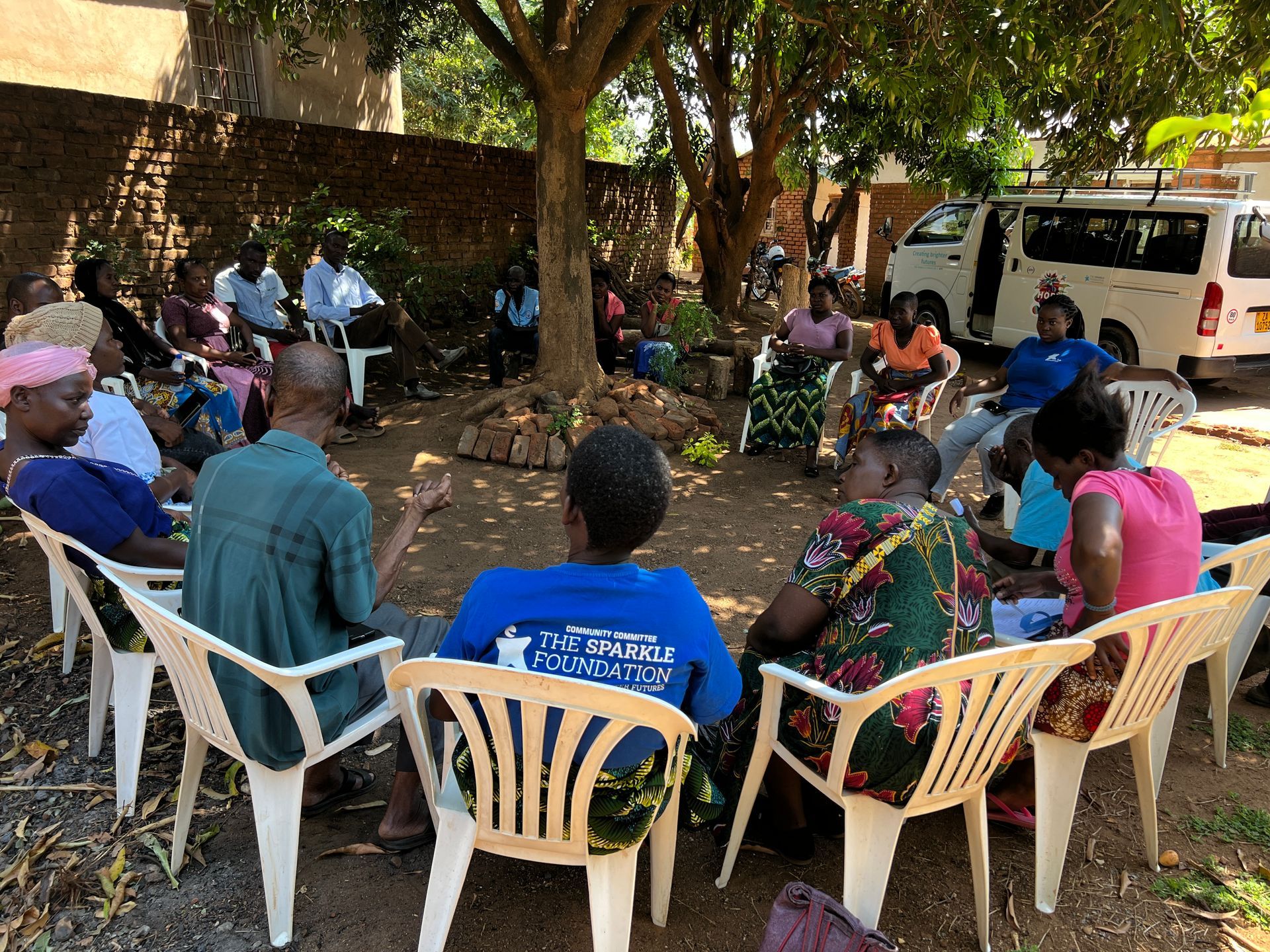
A child’s academic journey is not just shaped by teachers and schools, it thrives when parents play an active role and the role of parents extends far beyond supporting homework and attending parent-teacher conferences. Research highlights that students perform better when their families are engaged in their education. But how can we empower parents to become effective partners in this process? By providing the right tools, fostering collaboration, and creating an inclusive environment, parents can contribute significantly to their child’s success. Let's explore some of the practical strategies that educators, schools, and communities can use to strengthen the parent-school partnership. These approaches not only enhance student achievement but also build a support system that benefits everyone involved. Provide Clear and Consistent Communication Establish open and regular communication channels between schools and parents. This includes newsletters, emails, phone calls, and even social media updates. Keeping parents informed about their child’s progress, school events, and initiatives encourages active participation. Teachers should be encouraged to provide both positive feedback and constructive insights, ensuring parents feel involved and know how to support their child’s academic journey. Offer Parent Education and Training Host workshops and training sessions to help parents better understand the curriculum, teaching methods, and educational standards. This can make parents feel more confident in assisting with homework or understanding school policies. Workshops could also address topics like managing screen time, promoting good study habits, or addressing mental health challenges children may face. As related to Lev Vygotsky theory which highlights the role of parents in providing scaffolding and support children’s learning and cognitive development.

By: Priyani Gangopadhyay In light of the recent World Menstrual Hygiene Day celebrated on 28th May 2025 under the theme "Together for a Period-Friendly World," I have written this article to share what I’ve learnt about the hardships teenage girls in Malawi face when it comes to managing their menstrual hygiene, how it impacts their dignity, daily lives, education, and the inspiring work being done to support them. Growing up in a high-income country, I, like most teenage girls, have always had easy access to things like sanitary pads, girls' toilets, and cleaning facilities—necessities we often take for granted during our periods. Sadly, for countless teenage girls in low-income countries like Malawi, these basic needs for managing their periods are simply out of reach. My understanding of this situation significantly deepened after speaking with senior members of The Sparkle Foundation Team. Joshua Ojiezele (Volunteer Coordinator) and Vanessa Hamilton (Project Co-ordinator) kindly shared invaluable insights. I also had the opportunity to speak with Frances Chisi (Community Officer) and Dr Sibongile Ndala (Clinician) who work directly with children in rural Malawi. What I heard from them deeply moved me, and I spent considerable time conducting my own research to truly grasp the heartbreaking realities. Understanding Menstrual Hygiene Management (MHM) Menstruation is a natural biological process experienced by the girls and adult women of reproductive age. Menstrual Hygiene Management (MHM) refers to how they access, use, and dispose of menstrual products safely and hygienically during their periods. Proper MHM is not merely about comfort and cleanliness; inadequate MHM can lead to severe health consequences such as urinary tract infections, genital tract infections, and skin diseases in private areas.2 Furthermore, MHM is intrinsically linked to general health, mental well-being, educational attainment, dignity, and self-esteem, making it not only essential but also a basic human right. Effective MHM means having access to: Menstrual hygiene materials such as sanitary pads, tampons, menstrual caps or clean cloths. Supportive supplies such as soap, clean underwear and pain relief medicines. WASH (Water, Sanitation, and Hygiene) infrastructure providing clean toilets, clean water, washing areas. Education and awareness around menstrual health and hygiene which are vital for breaking taboos and promoting safe practices.
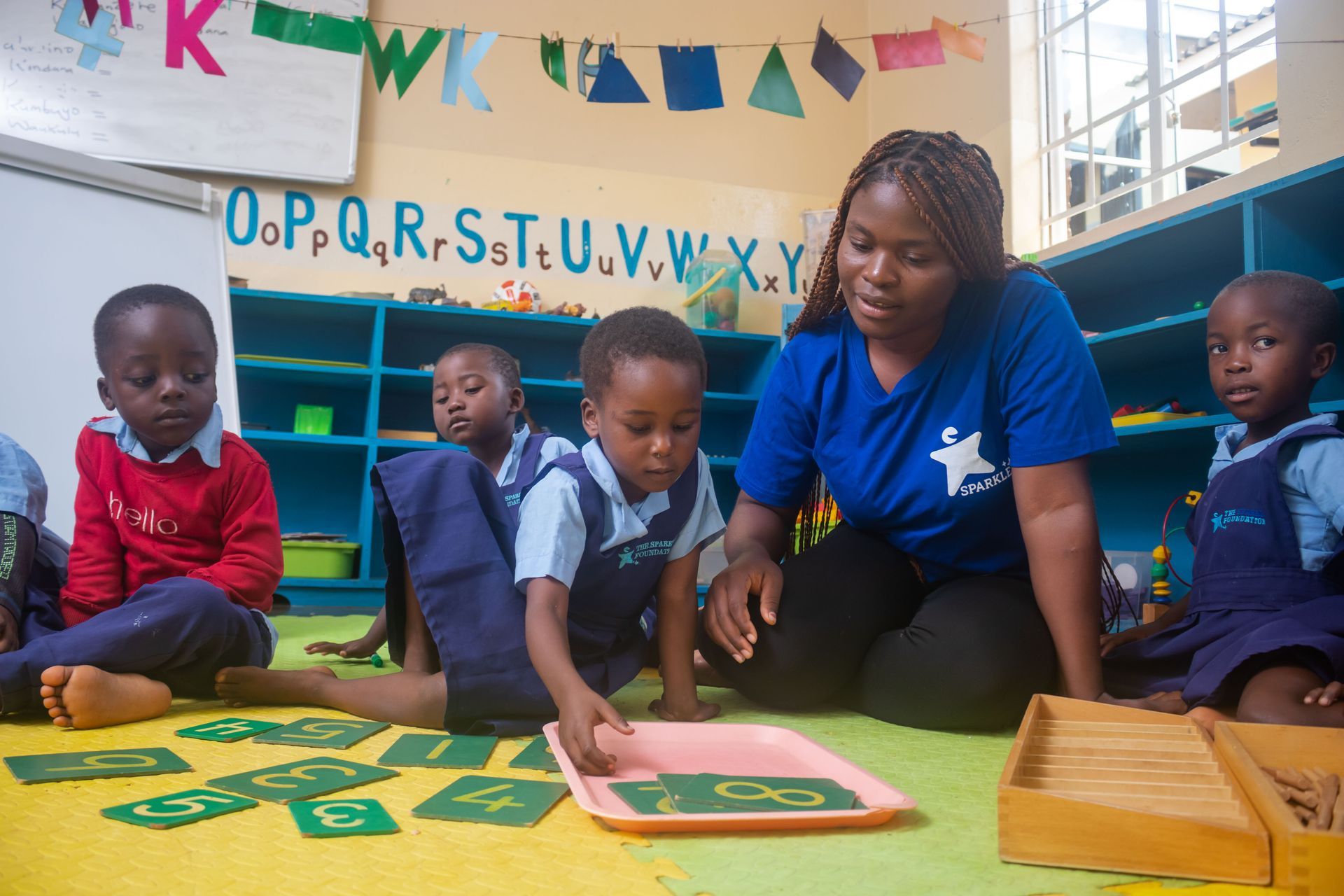
Teaching really is an art. It’s not just about passing on knowledge, it’s about nurturing curiosity, guiding young minds and helping to shape the future. And in Early Childhood Development, or ECD, this couldn’t be more true. These early years are when children begin to discover who they are and how the world works. What they learn – and how they’re taught – can have a lasting impact on the rest of their lives. To make that impact count, ECD teachers need more than just passion. They need the right skills, the right mindset, and the willingness to grow alongside the children they teach. Here are a few key areas every ECD teacher should embrace to make a real, lasting difference. Creating A Supportive And Well-Managed Classroom Every child deserves to feel safe, valued and inspired when they step into the classroom. Good classroom management doesn’t mean being strict for the sake of it, it means creating an environment where children feel confident to explore and express themselves. It’s about clear routines, mutual respect and a lot of patience. Children thrive when they know what to expect and feel secure in their surroundings. And when the classroom feels calm and consistent, learning becomes something joyful rather than stressful. At this stage of life, it's not just about what they learn, but how they feel while they’re learning. A positive classroom can build confidence, resilience and a genuine love for education..
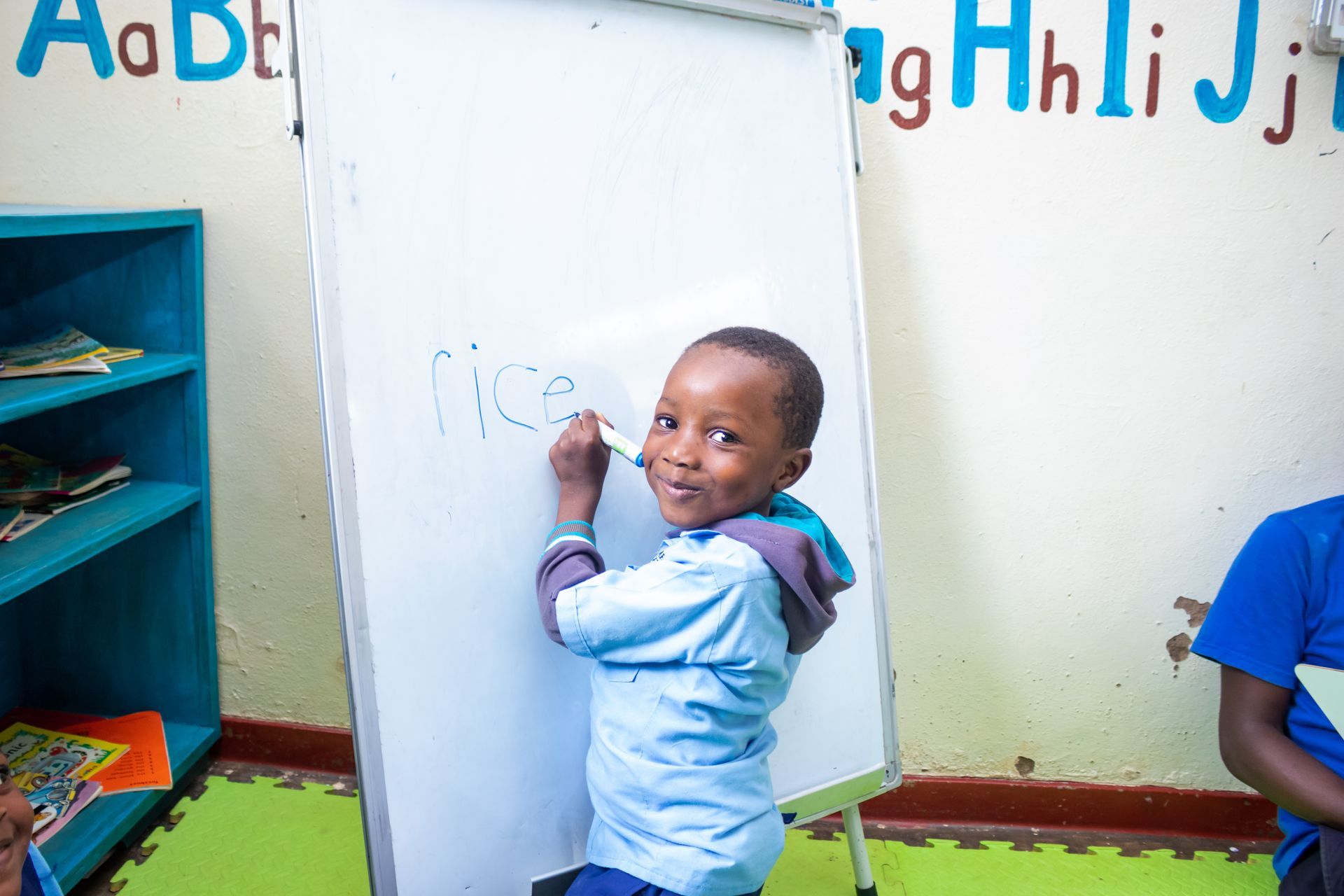
Early Childhood Development (ECD) is one of the most powerful tools for shaping a child’s future. The early years, particularly before the age of five, are vital for brain development and lay the groundwork for learning, social interaction, and emotional wellbeing. Yet in many communities, ECD remains undervalued, overlooked, or even disregarded altogether. Many parents and guardians do not recognise the importance of sending their young children to ECD centres. This isn’t due to a lack of care for their children’s future, but often stems from limited awareness, cultural norms, and social pressures. Some parents never experienced ECD themselves and, as a result, struggle to appreciate its benefits. Others worry about going against the grain, preferring to follow what those around them are doing rather than making an independent decision for the sake of their child’s future. For organisations working within early years education, shifting these deeply rooted attitudes is one of the most significant challenges and also one of the most essential. Why Some Parents Resist Early Childhood Education To change attitudes around ECD, we must first understand why some parents are hesitant. The reasons are varied, but several common themes emerge: Limited Awareness Many parents simply don’t realise the advantages of early years education. They see formal schooling as something that begins at primary level and underestimate how influential the formative years can be for a child’s development. Cultural and Traditional Beliefs In some communities, the belief persists that young children belong at home until they’re ‘old enough’ for school. ECD is often misunderstood as merely a form of childcare, rather than a space where key cognitive and social skills are developed. Lack of Personal Experience Parents who never attended ECD may not recognise what their children stand to gain from it. If they managed without it, they may assume their children will as well. Social Pressures and the Fear of Being Different In rural areas particularly, people tend to follow what the community does. If most families aren’t sending their young ones to ECD centres, others may fear judgement or isolation for doing so. Economic Pressures For some households, especially those with limited resources, older children’s schooling may take precedence over ECD. When budgets are tight, early years education might not be seen as a priority. The Challenges Faced by Organisations Promoting ECD For those striving to improve access to early childhood education, these obstacles can be difficult to navigate. Key challenges include: Shifting cultural norms, and helping parents understand that ECD is not merely babysitting, but a critical stage of learning and development Breaking generational patterns, such as the belief that “we didn’t attend ECD and we turned out fine” Encouraging investment in ECD, even when families face financial hardship Overcoming community-wide scepticism, which often requires consistent, long-term engagement. Strategies for Changing Attitudes Towards Early Childhood Education Transforming attitudes and behaviours around ECD doesn’t happen overnight, but with the right approach, change is possible. Here are some effective ways to encourage greater acceptance: Raise Awareness at Community Level: Organisations can run information campaigns to educate parents and carers on the benefits of ECD. Using local radio, village meetings, and personal stories from families who’ve seen the positive impact of ECD can be especially powerful. Involve Community Leaders and Role Models: People are far more likely to support ECD when respected community figures—chiefs, faith leaders, or elders, advocate for it. Their endorsement can influence public opinion and bring others on board. Encourage Parental Involvement: When parents are actively involved in their child’s early learning, they’re more likely to appreciate its value. Hosting open days, storytelling events, and joint parent-child activities can help break down barriers. Highlight Success Stories: Real-life examples can go a long way. Sharing the journeys of children who’ve benefited from ECD, and the stories of parents who were initially unsure but later became advocates, can shift perceptions. Improve Accessibility and Affordability: To ease the financial burden, community-run ECD centres, volunteer-led programmes, or partnerships with local businesses can help make early learning more accessible to all. Create a New Community Norm: Once more families begin sending their children to ECD, others are likely to follow. Over time, this builds a new culture in which early learning is seen as the expected, standard path. Looking Ahead, A Community That Champions Early Learning Changing deeply held views takes time, commitment, and a thoughtful approach. But the outcomes are well worth the effort. When families embrace ECD, children are given the best possible start, leading to better academic results, greater self-confidence, and stronger social skills. The aim isn’t just to influence a handful of families, but to shift the entire cultural narrative. Early childhood education should be seen as a right, a norm, and a priority. Because when we invest in a child’s early years, we’re investing in their entire future and in the future of the community as a whole.
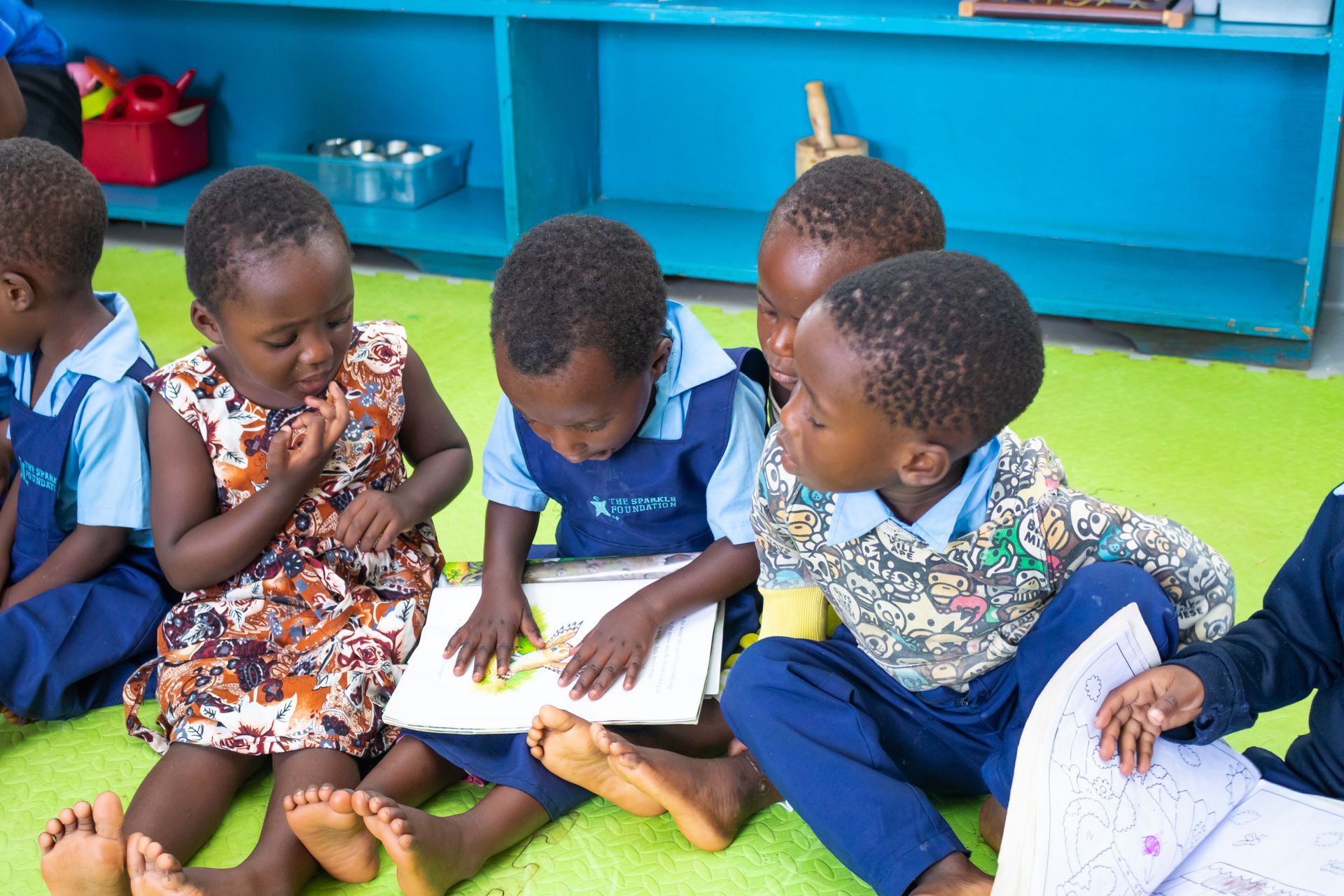
Picture a classroom brimming with laughter, creativity, and hands-on exploration, where children learn through doing rather than simply listening. This is the heart of play-based learning, an approach that is transforming early childhood education in Malawi. By weaving play into the curriculum, teachers are able to nurture curiosity, develop problem-solving skills, and enhance emotional intelligence, laying a strong foundation for lifelong learning. Early childhood education in Malawi faces a number of challenges, including overcrowded classrooms, limited teaching materials, and a strong emphasis on rote memorisation. However, play-based learning presents an effective and engaging alternative that improves educational outcomes and better prepares children for future academic success. Why Play-Based Learning Matters Play is not merely a pastime, it is central to a child’s development. Through play, children explore the world around them, develop crucial cognitive and social skills, and gain the confidence to navigate new experiences. Research shows that play-based learning supports brain development, improves memory, and strengthens problem-solving abilities. Most importantly, it makes learning enjoyable and meaningful, cultivating a lifelong love for education. But how exactly is play-based learning making a difference in Malawi’s classrooms? The Sparkle Foundation’s Role in Play-Based Learning The Sparkle Foundation understands the profound benefits of play-based learning in early childhood education and development. This child-centred, age-appropriate method encourages creativity, social interaction, academic progress, and critical thinking. That’s why Sparkle trains its teachers and supports them in implementing play-based strategies, ensuring children develop across all areas of learning. Play-based learning consists of the following key elements; Self-direction: Children choose what they play and how they play it. Guided Support: Teachers may supervise, join in, or offer ideas, but the child remains in control of the activity. Open-ended Play: Children are encouraged to explore and experiment with different materials and ideas, without predetermined outcomes. Playful Learning: Lessons are crafted to be interactive and enjoyable, offering a more meaningful experience than traditional teaching methods. The Key Benefits of Play-Based Learning Enhancing Cognitive Development Activities such as puzzles, storytelling, and role-play stimulate critical thinking and creativity. Hands-on learning helps children to understand concepts more quickly and retain information for longer. Building Social and Emotional Skills Playing with peers fosters teamwork, communication, and empathy. Group activities teach children to express themselves, listen to others, and resolve conflicts—skills that are essential both in and outside the classroom. Making Learning Enjoyable and Engaging When learning feels like play, children are more motivated and enthusiastic. Interactive experiences spark the imagination, turning lessons into exciting adventures. Strengthening Language and Communication Through songs, storytelling, and pretend play, children grow their vocabulary and improve verbal expression. Play supports language development in both Chichewa and English, laying the groundwork for future learning. Making Use of Local Resources Even in low-resource settings, play-based learning remains affordable and accessible. Teachers can use everyday items such as bottle tops, stones, sticks, and clay to create engaging and educational activities. A Brighter Future Through Play Play-based learning is more than just a method, it is a powerful approach that nurtures confident, well-rounded, and curious learners. In Malawi, where early childhood education faces significant barriers, incorporating play into the classroom offers a vital solution. It improves cognitive development, strengthens social skills, and enhances overall academic performance. By embracing play-based learning, educators can move beyond rote memorisation and foster an environment where children engage with the world around them, develop critical thinking skills, and fall in love with learning. Organisations like the Sparkle Foundation are instrumental in this effort, training teachers and promoting meaningful, child-centred education. Ultimately, investing in play-based learning is investing in the future. It equips children with the skills, creativity, and resilience they need to thrive, not just in school, but in life. It’s time to recognise the value of play and ensure that every child, no matter their background, has the opportunity to learn through imagination, exploration, and joy.
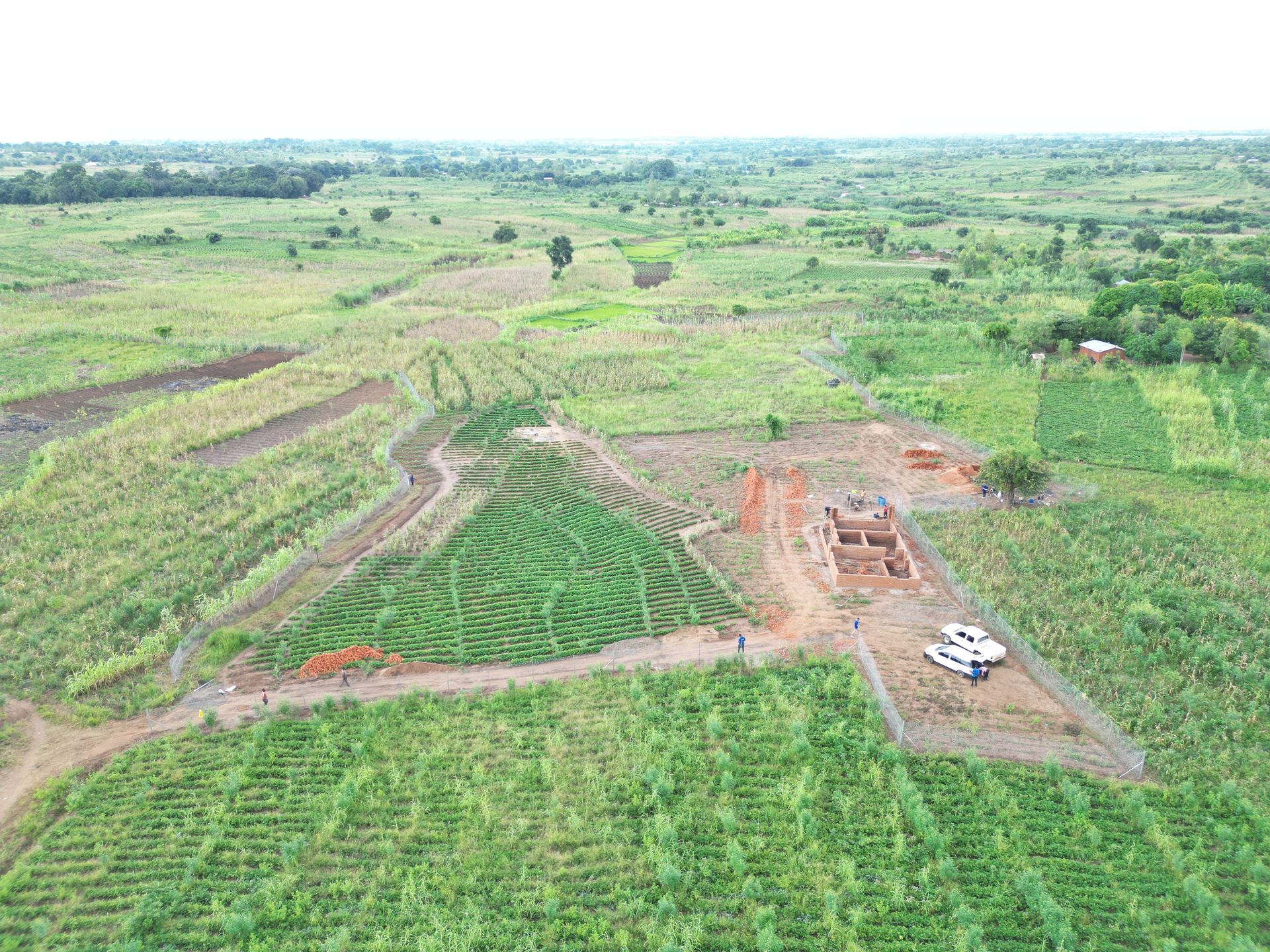
For years, Malawi has relied heavily on external aid and a single commodity, tobacco, to sustain its economy. This dependence has left the country vulnerable to the fluctuations of global markets and external shocks. Now, with USAID withdrawing its support, the urgency for economic diversification and self-sufficiency has never been greater. A Nation at a Crossroads USAID has long been a key partner in supporting Malawi’s healthcare, education, agriculture and economic development. Its departure creates a significant gap, not just in funding, but in the infrastructure and systems it helped support. The impact goes beyond numbers; it is a wake-up call. Yet, the truth is that Malawi has the potential to thrive beyond aid. We are blessed with fertile land, a young and energetic population, and a growing spirit of entrepreneurship. The challenge lies in how we harness these strengths to shape a future built on our own capabilities, not external dependency.




